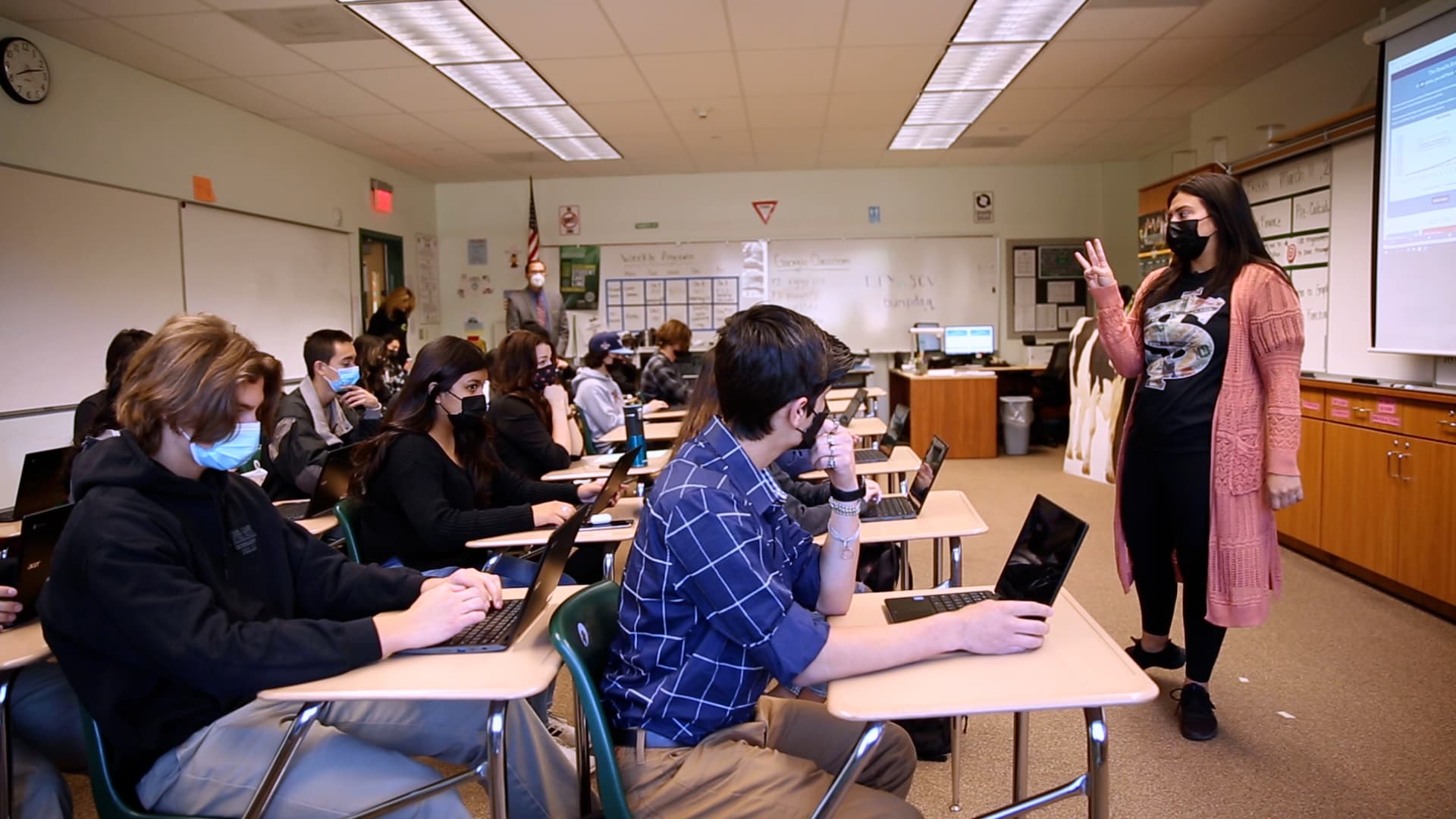Personal finance teacher Marina White teaches Canyon High School seniors in Santa Clarita, California, a lesson on investing and the power of compound interest.
Helen Zhao | CNBC
Millions of high school students across the US will graduate in 2022 with one important course under their belt: personal finance.
Recent momentum among states requiring personal finance education in high school means that nearly 1 in 4 students will take such a course before they graduate this year, according to Next Gen Personal Finance’s 2022 State of Financial Education report, released Thursday.
That’s a huge change from 2018, when the first report was issued and only 16.4% of high school students in the country were required to take a personal finance class. Next Gen Personal Finance, a nonprofit, now feels that it is on track to reach its goal of giving 100% of students guaranteed access to personal finance education by 2030.
More from Invest in You:
How to decide if you should rent or own a home
US households are spending an extra $327 a month due to inflation
Is inflation crunching your budget? Here are 3 ways to fight back
“We’ve really seen some great progress in terms of guaranteed access,” said Christian Sherrill, director of growth and advocacy at Next Gen Personal Finance.
bills in progress
In addition to the eight states that currently guarantee all students will take a personal finance course before graduating high school — which Next Gen Personal Finance considers to be the gold standard — four additional states have passed similar legislation in the past 12 months.
Those states — Florida, Nebraska, Ohio and Rhode Island — are in the process of implementing their mandates, meaning that in the coming years, more than 32% of students in the US will have a personal finance class requirement.
“In the span of five, six years, the proportion of students nationwide with guaranteed access to a personal finance class has doubled,” said Sherrill. “We’re thrilled to see that growth emerges.”
Other states also have pending bills that may be passed later in the year, further extending personal finance education efforts across the country. A measure in Georgia is likely to be the next one to become law — both state houses have approved the legislation and sent it to Gov. Brian Kemp, a Republican, to sign.
“When you start seeing Ohio and Florida as states that’ve already crossed the finish line, it’s shown other large states that this is possible,” said Tim Ranzetta, co-founder of Next Gen Personal Finance.
Access in states without mandates
To be sure, there are high schools in states without mandated personal finance education that offer such classes.
But local offerings are often unequal, the report found. Overall, 1 in 10 students in a state that doesn’t mandate a personal finance class have access to such a course. In schools where 75% of students are nonwhite or receive free and reduced lunch, that share drops to 1 in 20.
“A lot of schools that don’t feel like they have the resources to implement this course end up not doing it,” said Yanely Espinal, director of educational outreach at Next Gen Personal Finance.
She added that many of the schools that serve mostly minority students or are in a low-income community are some of the first to see issues with staffing and so may simply not have enough teachers to offer an additional course.
“If it’s not already a requirement, then that means it’s just so much less likely that they’ll have the resources, in terms of human capital, that can then serve every student,” Espinal said.
That factor is one of the reasons an affiliate of Next Gen Personal Finance, called the NGPF Mission 2030 Fund, is advocating to have all states pass legislation that guarantees personal finance education in high school.
going forward
The group also wants to see that a semester-long, stand-alone course in personal finance before graduation becomes a national standard.
Currently, nearly half of all US high school students have access to such a course as an elective, but it is not a graduation requirement. Another 25% receive some personal finance instruction embedded in another course.
To cover everything a high schooler should know before graduation, a full semester course is needed, according to Next Gen Personal Finance.
.
